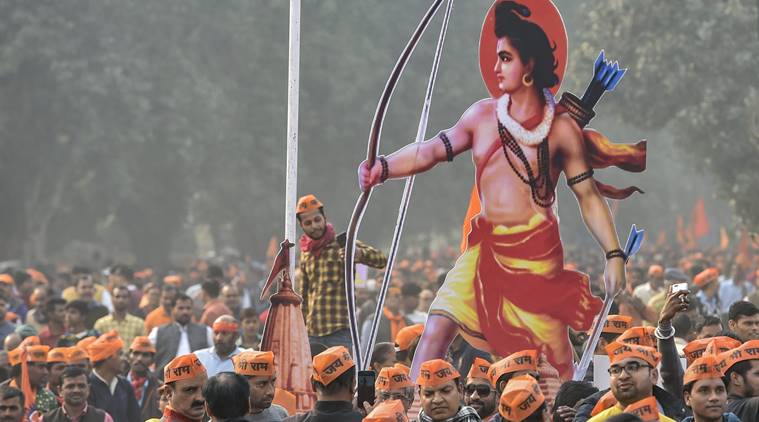
While appreciating friend Apoorvanand’s strictures (‘A rotten compromise’, IE, February 6) following my suggestion (‘A new temple, a new mosque’, IE, February 6) for a possible settlement in Ayodhya, and welcoming his comment as a valuable contribution to a necessary debate, I must also respond frankly to him.
Let me reproduce, word for word, the core suggestion which I had advanced in the context of the Supreme Court readying itself to hear Ayodhya’s land-title dispute: “The bare bones of a settlement are not hard to identify. One, the Hindu side admits the error in demolishing the mosque. Two, the Indian state admits its failure to prevent the demolition. Three, the Muslim side acknowledges the Hindu community’s wish to see a Ram temple rise on the site as also the Hindu community’s belief that a temple had once stood where the Babri Masjid was built. Four, not far from the site, and yet not too close to it, space for a new mosque is made available by the Hindu side and the Indian state. If necessary, the four steps can be simultaneous. In this dream-like scenario, acknowledgment of wrongdoing and restitution leads to justice as well as reconciliation… Will Ayodhya’s disputing sides voluntarily come together as I have imagined? Very unlikely. But the Supreme Court can direct them to do so.”
To the question that has been asked — which (or what) is the Hindu side or the Muslim side that I speak of — the answer is at two levels. For the Supreme Court, the Hindu and Muslim disputants before it would represent the two sides. In the nation generally, those Hindus who want a temple constructed at the site where the mosque had stood until 1992 represent “the Hindu side” in the dispute, and those Muslims who want a mosque rebuilt on the site represent “the Muslim side”.
I recognise that a great many Hindus and Muslims in the land would agree to any settlement irrespective of where a temple or mosque is built or rebuilt, but it is the divide between the Hindu and Muslim “sides” as defined above that needs to be bridged.
An impossible goal? Perhaps. But not more impossible than the other aims that are routinely discussed — for example ending pollution, corruption, hunger and disease.
It should be noted that the word “compromise” was not used in my proposal, neither in the lines reproduced above nor elsewhere. The word “settlement” was employed, as also the phrase “acknowledgment of wrongdoing and restitution”. Equally importantly in my proposal is that the state would be a key party to a settlement and to the acknowledgment of wrongdoing and restitution.
Once the state, which would include the central government and the UP government, makes the proposed acknowledgment and restitution, it would simultaneously reaffirm its commitment to prevent a reenactment anywhere (in Mathura, Kashi or anywhere else) of what happened in Ayodhya in December 1992.
By making the proposed acknowledgment, the state would underline and reiterate India’s Places of Worship (Special Provisions) Act 1991 which “prohibits conversion of any place of worship” and “provides for the maintenance of the religious character of any place of worship as it existed on August 15, 1947”. It is well known that only the disputed Ayodhya site was left out of the purview of the 1991 Act.
Acknowledgment of wrongdoing is never easy. Nor is it necessarily fruitless. A Hindu litigant admitting to the Supreme Court, “What was done in Ayodhya on December 6, 1992 was wrong”, would be a significant statement and could contribute to a better climate in the land.
The state acknowledging that it failed to prevent the tragedy in 1992 would also not be easy. Yet that could send a critically important message to future rulers. And the state and the Hindu side joining hands in finding adequate space for a new mosque could, God willing, turn out to be healing steps of restitution.
For the Muslim side to let go of the disputed (and despoiled) site would be very hard. Apoorvanand is perfectly right in stating that an honourable compromise is one where the stronger side yields to the weaker. But the need of the hour may not be compromise so much as healing.
I am not so naïve as to think that my proposal will be accepted by Ayodhya’s disputants, or by the two “sides” in the nation as I have tried to define them, or to imagine that the Supreme Court will give my suggestion serious attention.
But some individuals may perhaps ask themselves whether, as I put it in my article, it is impossible for a nation to come together to address the past’s mistakes.
The writer, a grandson of Mahatma Gandhi, is research professor at the Centre for South Asian and Middle Eastern Studies, University of Illinois at Urbana-Champaign